Week 4 - Size Doesn’t Matter – It’s The Result That Counts 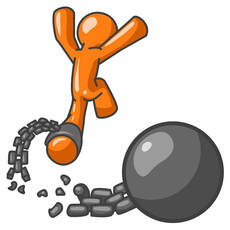 So, you’ve tried finding an agent and not been successful and you’ve submitted your book to medium sized publishers with similar results. Congratulations, you are now an “Indie author”. This is a club that is growing in size and probably has a global membership of over a million right now. You even have your own hashtag on Twitter: #indieauthor. With the arrival of the internet, whole new industries opened up that had never existed before. Amazon may be ubiquitous today, but it is sometimes easy to forget they didn’t even exist until 1994, just 25 years ago. "Congratulations, you are now an “Indie author”." One of the things the internet brought was platforms that allowed authors to self-publish their books. Lulu was one of the first, established in 2002. It was a game changer for authors who couldn’t find a publisher. It also produced an exponential growth in the number of people describing themselves as authors, to the millions there are around the world today. Unfortunately, self-publishing is still sneered at by many and shunned by more than a few readers. The way some readers see it, a self-published book, for some reason, can’t possibly be good. This is no more true than saying that a bookshelf built in someone’s garden shed is going to collapse. Yes, it might, but at least try placing your book on it before you make that judgement. You are not Sheldon Cooper – you can embrace change.  Self-published author and millionaire Amanda Hocking Self-published author and millionaire Amanda Hocking Have you heard of Amanda Hocking? No? Well maybe you should be more adventurous in your reading. In 2010 she was un unknown and penniless author from Austen, Minnesota, USA, frustrated at not being able to find a publisher. She wanted to raise $300 so she could go to Chicago to see a Muppets exhibition (she is a big fan). So, she self-published her book. After a few weeks she had sold 150,000 copies, making $20,000. Several books later and she is now a millionaire. Not a single publishing house nor a single agent was involved. She did it her way. There are many well-known authors signed to big name publishing houses who don’t make that sort of money. OK, not every author can be an Amanda Hocking - but they can all dream. There are plenty of authors who make a respectable living by self-publishing. There are also thousands who will never make a penny out of it, but there are reasons for that and we’ll take a look at some of those later in this series of blogs.  One thing some authors discovered was that if they could publish their own books, they could also publish books for other authors. This has led to the growth in small publishing houses and not all of them offer good value for money. I’ll get onto that in a moment as well. But, for the moment, I’ll tell you that I’m going to talk about self-publishing and using small publishers as though they are the same thing because, for most purposes, they are. So, if they are the same, why should you use a small publisher? Here we get to the crux of the matter. A publisher (please excuse me for dropping the “small” prefix) will do things for you that you don’t know how to do, you don’t want to do, you don’t have the time to do or they can do it better than you. The last time we redecorated our house we could have done it ourselves and saved a lot of money. Why didn’t we? Because our local painter and decorator could do a better job, made a lot less mess and we could carry on doing the things we really wanted to do, which wasn’t painting and decorating. Small publishers are the painters and decorators of the self-publishing world.
2. Providing an editing service, 3. Proofreading your work, 4. Formatting your work into an actual publishable book, 5. Uploading your book to the relevant retail platform(s) and 6. Marketing your book. I’ll be talking more about each of these in a moment.  If the publisher has done those things, they have earned their share of your book’s royalties. If they didn’t, why are you using them? All of those things the author can do for themselves. They aren’t all easy and some of them are very time consuming and/or tedious. Which is why some authors may prefer to get someone else to do them. There are many “publishers” out there that will ask you for money up front to do those things for you. Don’t pay them. Why not? Because once they have your money, they have no need to do anything else; in particular, bullet number 6. Marketing the book is the hardest and most time-consuming part of the process, but it is the point at which the author earns their income. "Because once they have your money, they have no need to do anything else" If you pay a “publisher” £500 to do the first 5 things on that list, then there is no need for them to do the 6th and hardest. They have fulfilled their remit by getting your book onto Amazon, Lulu or Kobo. They have no need to spend hours, days and weeks of additional effort to market your book. But if the publisher has done those first five things without you paying them, they will want some sort of return and they will only get that when your book sells. Proper publishers are hungry and they need to eat, so they will work hard to market your book so they can earn money. Pay up front if you want – but don’t expect your book to become a best-seller.  If you want to self-publish, then your starting point isn’t to upload your book onto KDP (or Lulu or Smashwords or Kobo etc). Your starting point is to learn how to do the 6 things in that list of bullet points above. In Week 1 of this blog we talked about beta readers and they are your source of informed opinion on your book (informed because they are your audience). If you haven’t yet established your network of beta readers, then now is the time. Why is this a vital step? 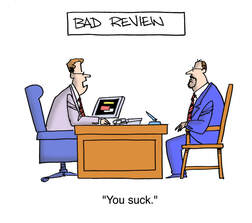 Well, people may buy your first book, but if it is the proverbial dog excrement, they will not come back for a second serving. Then there are the reviews. Not just on Amazon, but on Goodreads, Reddit and a whole host of other websites. Trying to market a book that is getting a lot of bad reviews is like trying to market a bicycle with square wheels. All authors get a few negative reviews, but if all you get are negative reviews you won’t sell any more books. And don’t try to fool people by getting friends and family to post good reviews for you. Amazon is wise to that and so are their customers. The reviews that carry the most weight are the ones posted by people who write a lot of reviews and that probably isn’t your Mum or your mate down the pub (assuming pubs ever re-open) But your beta readers have told you your book is great, so you don’t have to worry about that too much. "The reviews that carry the most weight are the ones posted by people who write a lot of reviews" 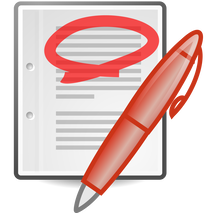 Editing is about taking a good book and making it better. It may be that a paragraph needs to be shorter, sharper, punchier. It may be that the descriptions are a bit flat and need jazzing up. The pace of the narrative may be too slow, or too frantic, or the plot is too confusing. It may be that a character is too shallow or unbelievable. An editor looks at all those things and more and offers advice on how to make them better. But they won’t re-write the book for you. There are plenty of people offering paid editing services online. It is up to you whether or not you engage with them. But if you do, make sure you understand exactly what to expect from them. You can expect to pay at least £20 an hour for editing, perhaps £200 for one read of your book – and that’s the cheap end of the scale. Second readings are usually cheaper, perhaps half the cost of the first. There are on-line courses you can do to learn how to edit your work and some of them can be accessed for free, or quite cheaply. Learn how to edit and you can enhance your book no end. You still need good characters and a good plot, but you already know how to create those, don’t you? If you don’t, then again, some investment in learning will pay dividends in the long term. But you already knew that. You may think you are a good writer already and maybe you are, but everyone can improve with a little bit of help. If you don’t think you have anything to learn, why are you reading this blog? I would recommend this course from Future Learn in conjunction with The Open University – and its free. You can also sign up no matter where you are in the world.
It is something that is much easier to do than editing, but it never hurts to get a fresh pair of eyes to take a look at your work. I have spotted typos and mistakes in books published by the biggest names in the busines – so no one is immune from missing things, no matter how many times they read them. You can find proof-readers who are quite cheap, offering their services on Fiverr.com. 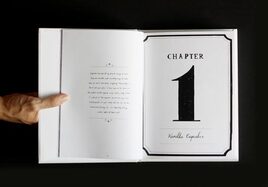 Formatting and uploading books is a matter of trial and error, but it is something that needs to be considered. I have bought books that have really not presented themselves very well because of poor formatting. A reader may only have paid 99p for your book, but they still want it to look like it cost £12.99. There is a whole blog that could be written about formatting and maybe we’ll write it one day, but the start point is to look at the books in your house and on your Kindle or other e-reader. What makes their layout pleasing – or what annoys you about them? If you do nothing else, take a look at what other publishers have done and copy it. 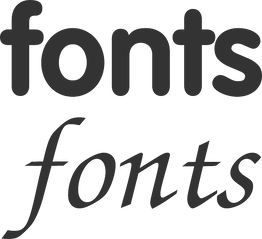 Fonts are especially important. There are fonts that are easy to read on the printed page; there are fonts that are easy to read on an e-reader; there are fonts that work on both and fonts that work on neither. Don’t spoil your book by using a font that looks pretty or quirky or different but doesn’t work on the media you have chosen for publishing. And do remember that a layout that works fine on an e-reader will probably need revising for a paperback. KDP can cause hours of frustration because of that. Uploading a book onto your chosen platform can take hours the first time you do it. But when you’ve finally beaten it into submission, the next time is a lot easier. There are help guides and often videos on most self-publishing platforms, but who wants to waste time reading/watching those? Actually, you do. Don’t work blind, use whatever help is available. One of our authors, Robert Cubitt, wrote a guide on how to use KDP, for some authors of his acquaitance and he has given us permission to let you use it. You can download it below. However, we accept no liability for it.  You will notice that I haven’t mentioned book covers and their design. That is a subject for a separate blog as it comes under the heading of “marketing”. Which brings us to that very subject. Have you got a few weeks to spare? No, didn’t think so. We’ll do our best to break this complex subject down into bite sized, easily digestible chunks. It is probably the most important part of this series of blogs, because this is where you will actually get the financial return for all those weeks, months or even years you have expended writing your book and getting it to the stage where you actually need to market it. "It is probably the most important part of this series of blogs" Over the next few weeks this blog is going to cover social media marketing mainly, which is the cheapest form of marketing you can do. We will also tell you why paying money to people to Tweet your books is money wasted. But that is part of the story, so we won’t spoil it for you. We’ll also take a look at the 6Ps of marketing and how they relate to social media. Feel free to Google that before we meet again. If you have enjoyed this blog and found it informative and you want to make sure you don't miss an edition, just sign up to our mailing list by clicking the button.
0 Comments
|
AuthorThis blog is compiled and curated by the Selfishgenie publishing team. Archives
June 2025
|
||||||||||
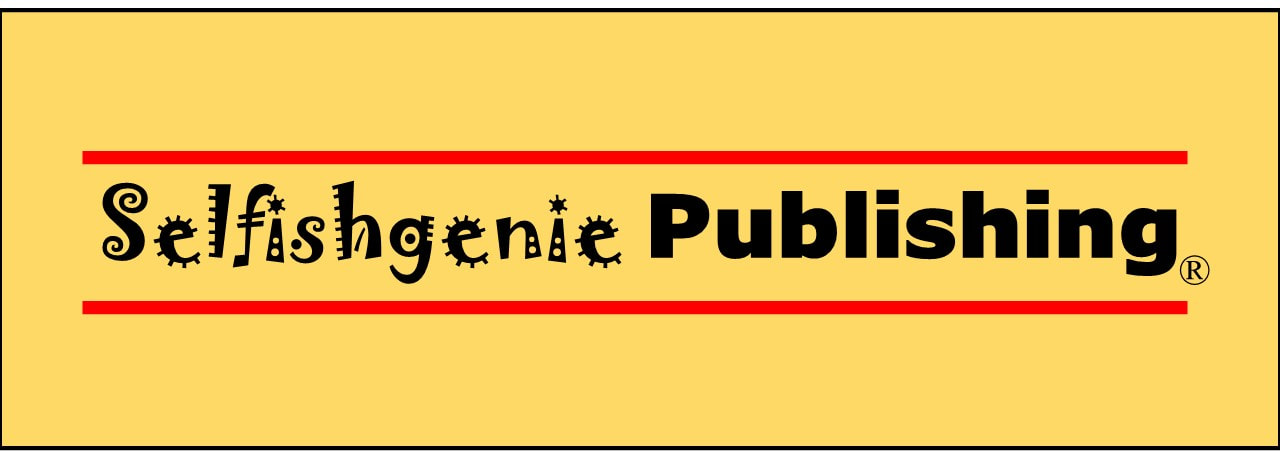
 RSS Feed
RSS Feed